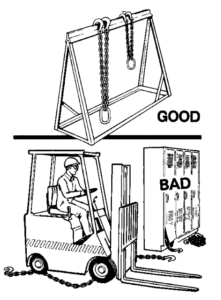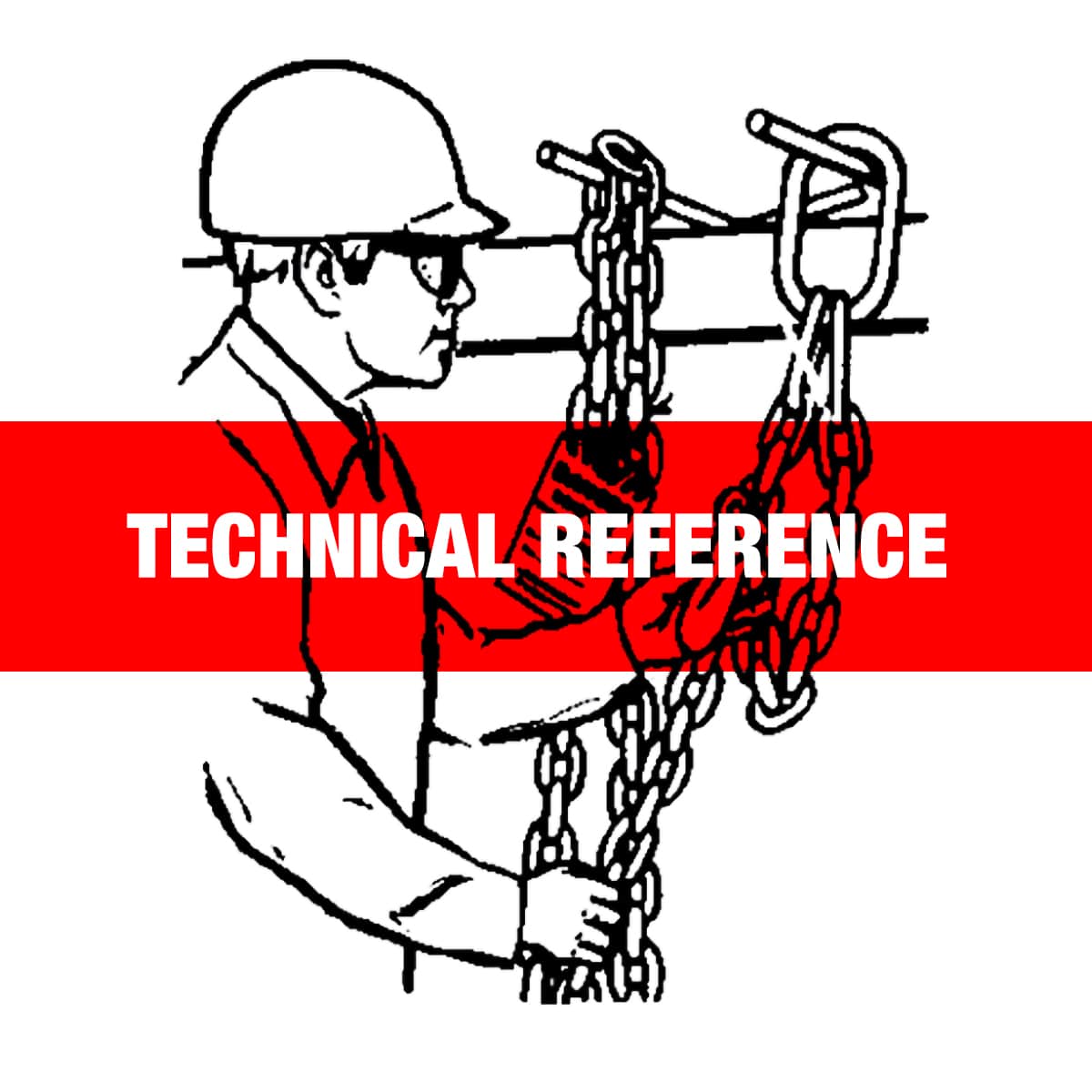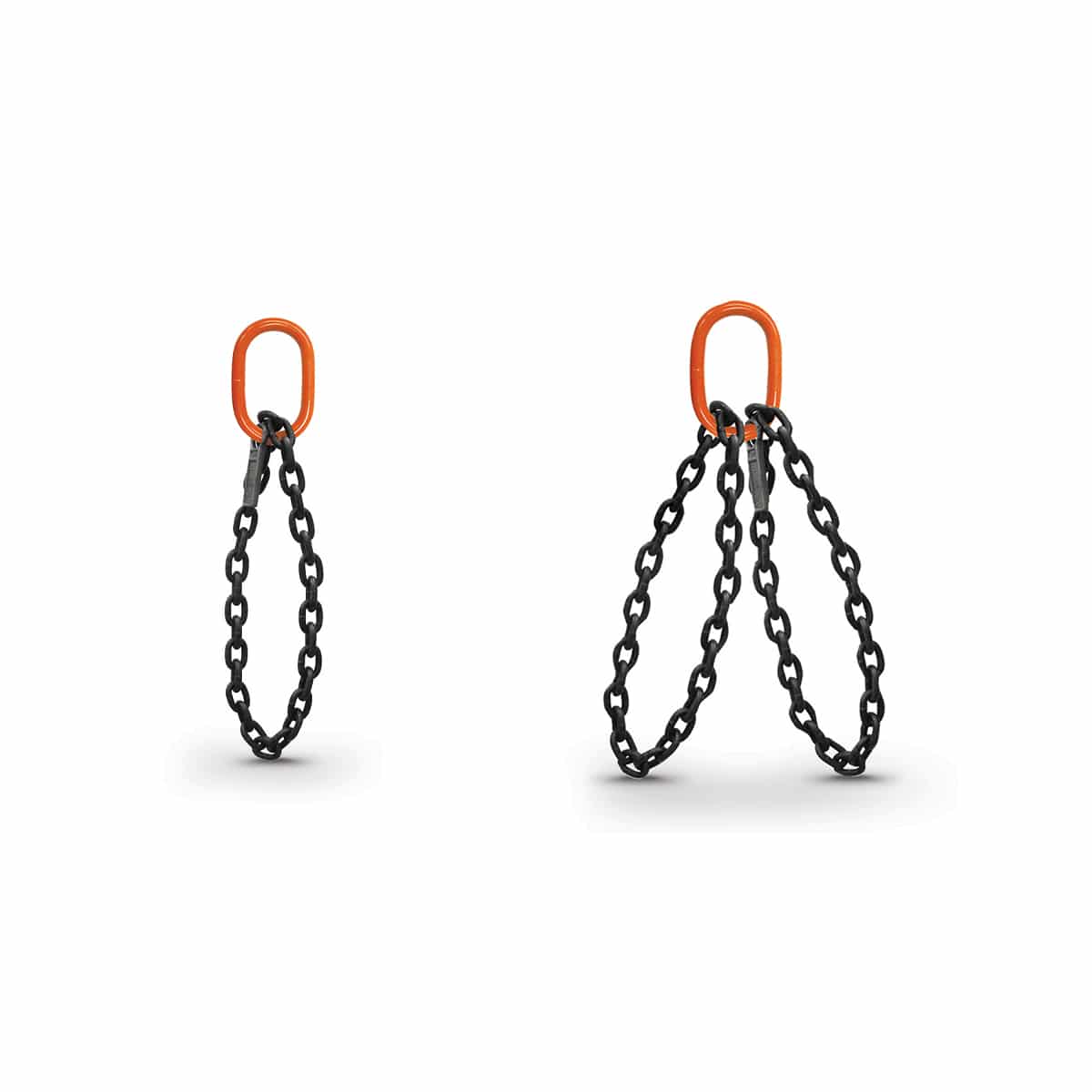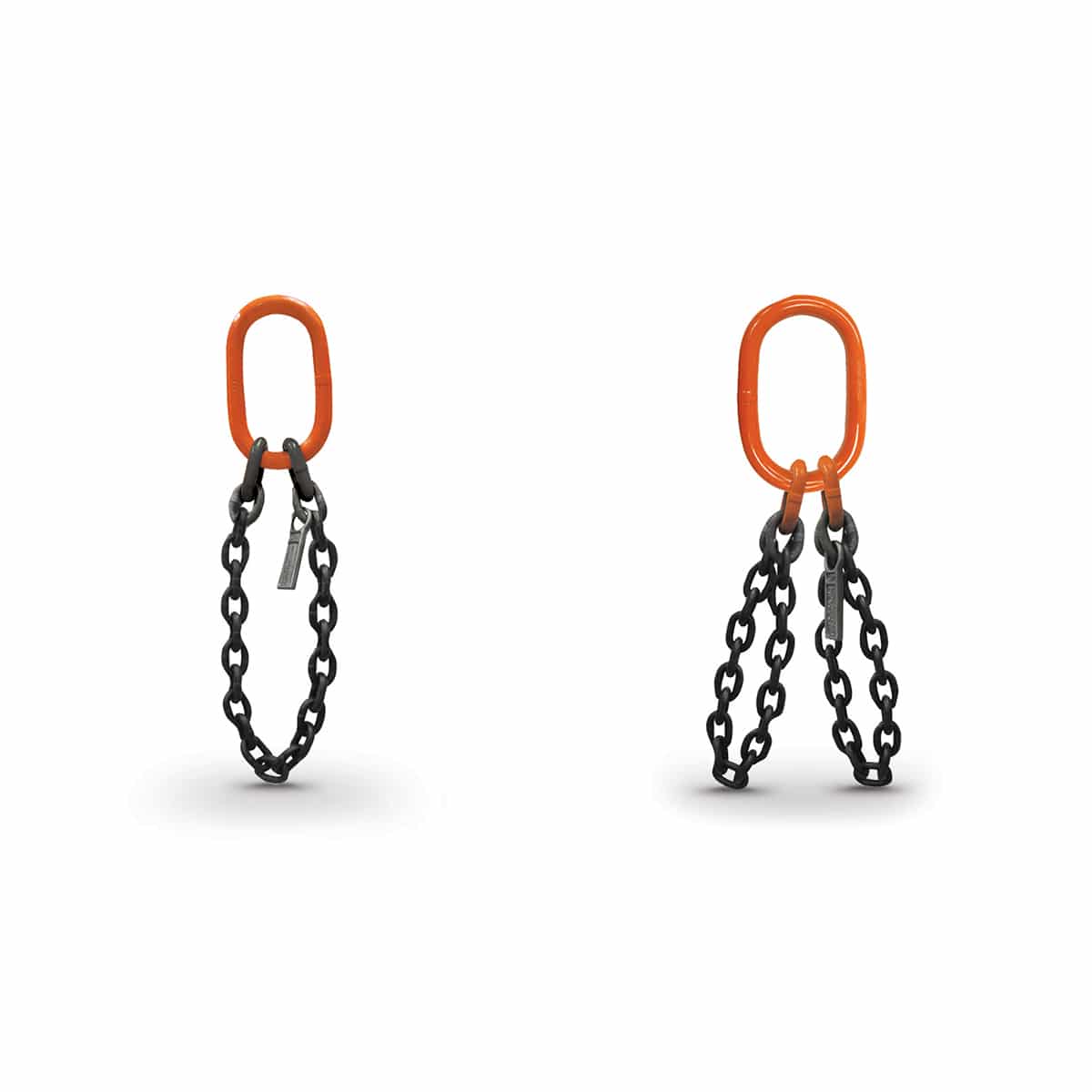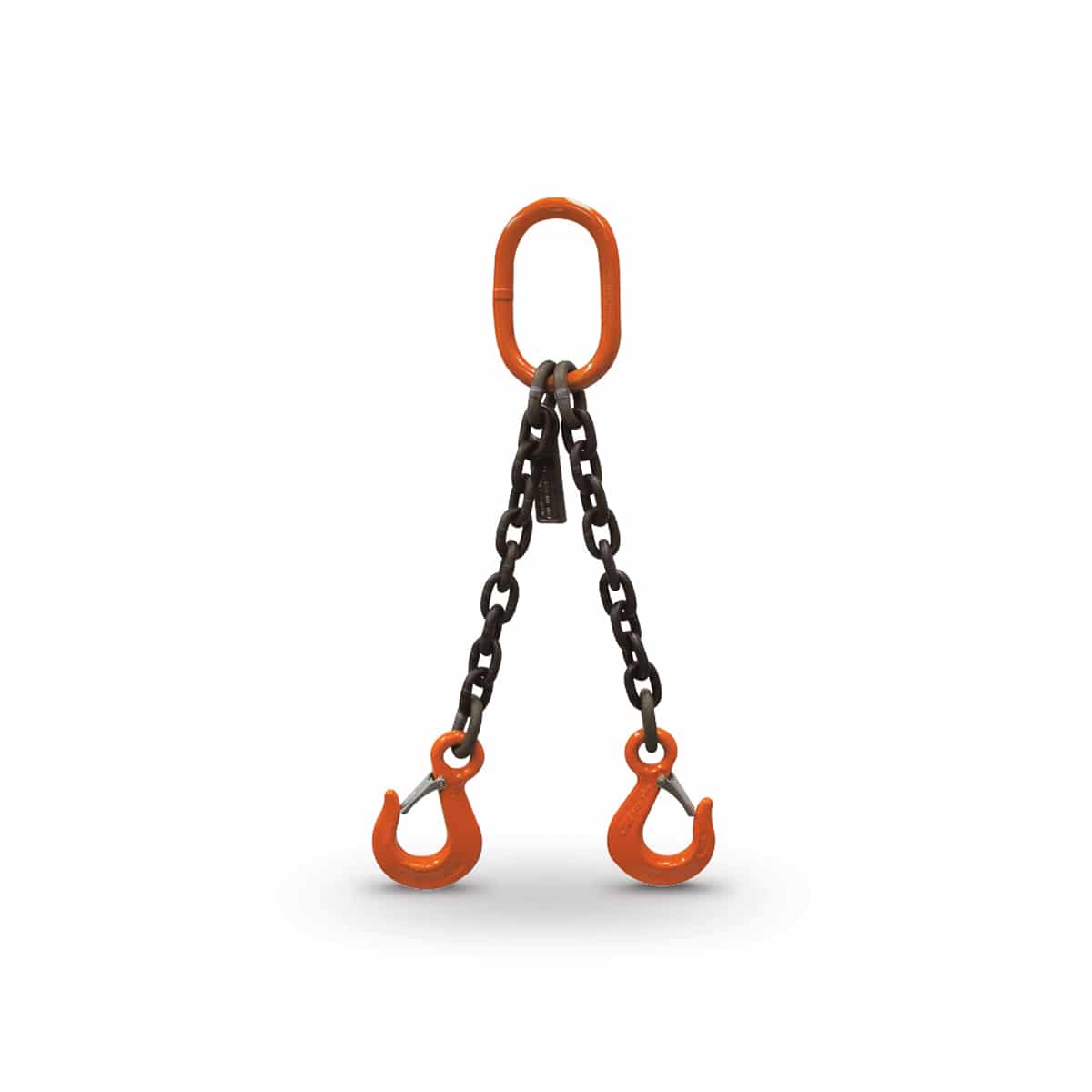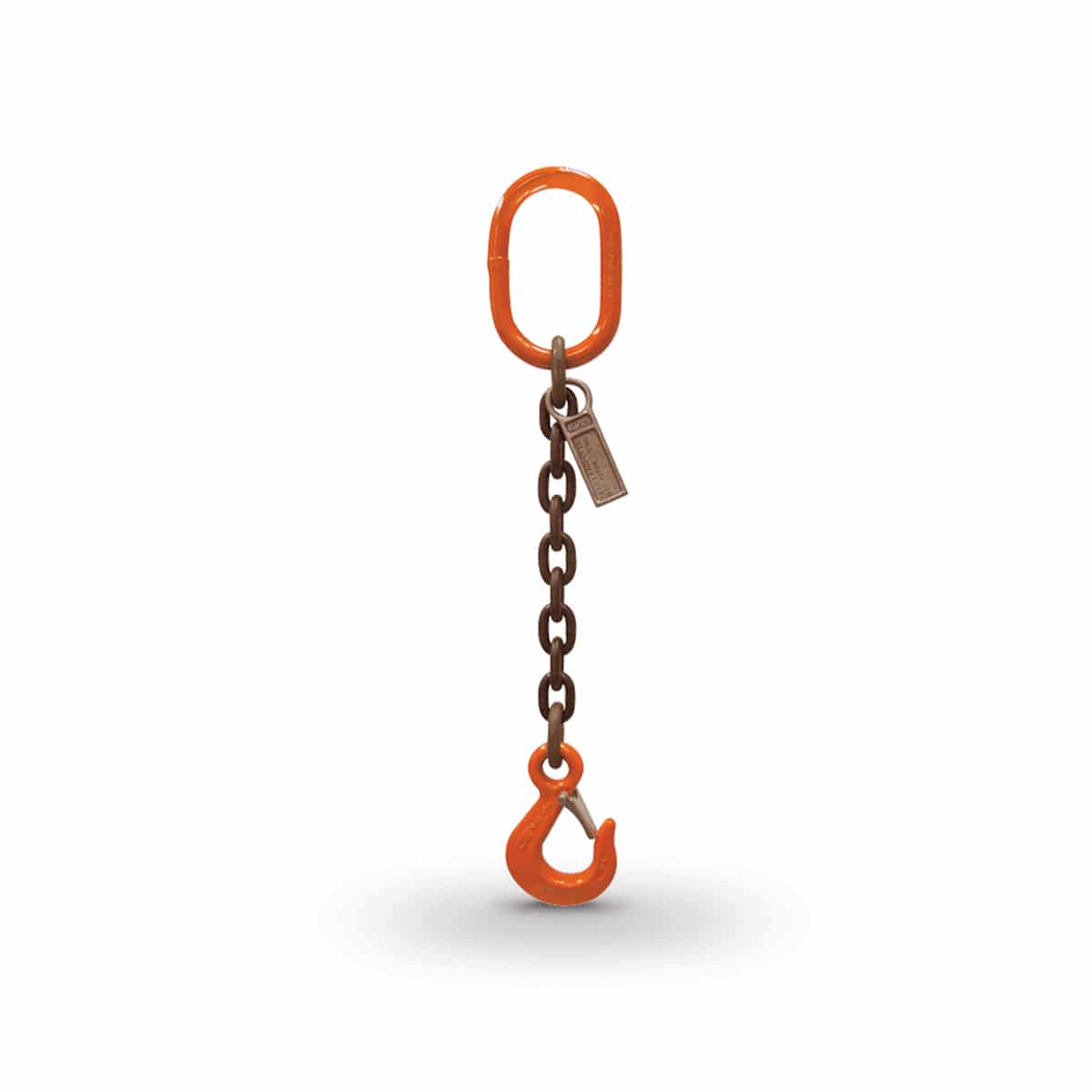Description
Follow These Recommendations for Safer Chain Sling Use:
1. Visually examine the sling before each use. Look for stretched, gouged, bent or damaged links and components, including hooks, with opened throats, cracks or distortion. If damaged, remove from service.
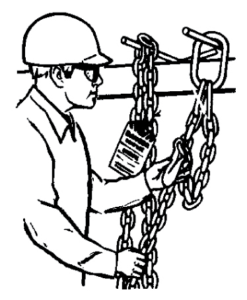
2. Know the load—determine the weight, center of gravity, angle of lift and select the proper size and type of sling.

3. Never overload the sling—check the working load limit on the identification tag. Always consider the effect of Angle of Lift—the tension on each leg of the sling is increased as the angle of lift, from horizontal, decreases. Use the charts in this catalog.

4. Do not point load hooks—load should bear on the bowl of hook.
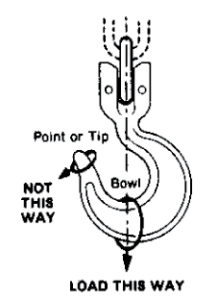
5. Make sure chain is not twisted, knotted or kinked before lifting the load.
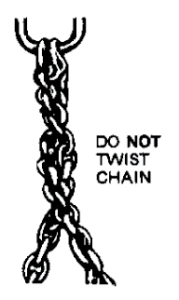
6. Slings should not be shortened with knots, bolts or other makeshift devices.
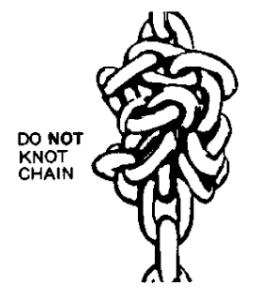
7. Protect chain with padding when lifting edged loads.
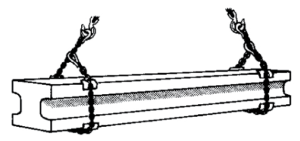
8. Lift and lower loads smoothly. Do not jerk.
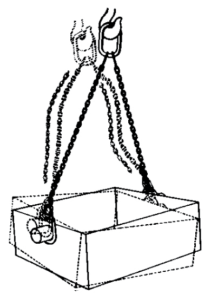
9. Hands and fingers should not be placed between the sling and load while sling is being tightened around the load. When lifted, the load should not be pushed or guided by employee’s hands directly on the load.
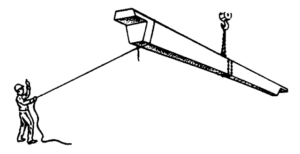
10. Protect chain slings from corrosion during storage.
11. Store slings properly on an A-Frame.
